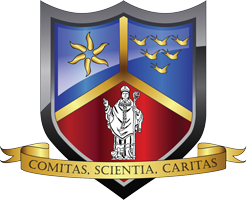Physical Education
Meet the Department
- Mr Bligh – Teacher of PE
- Mrs Harker – Second in Department
- Miss Coelho – Teacher of PE
- Mr Dallaway – Subject Leader of PE
- Mr Feery – Teacher of PE
- Mr Varney – Teacher of PE
Welcome to the PE Department
Physical Education and School Sport plays a major part in school life at St Richard’s Catholic College and we pride ourselves on supporting every pupil and his/her personal development.
The department believes Physical Education plays a critical role in educating the whole child. Research supports the importance of movement in educating both mind and body. Physical education contributes directly to the development of physical competence and fitness. It also helps pupils to make informed choices and understand the value of leading a physically active lifestyle. The benefits of physical education can affect both academic learning and the physical activity patterns of pupils. The healthy, physically active pupil is more likely to be academically motivated, alert, and successful.
Our ethos for Physical Education at St Richard’s is: STRIVE
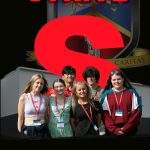 Sportsmanship – Are you demonstrating fair play and respect?
Sportsmanship – Are you demonstrating fair play and respect?
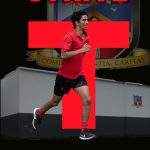 Teamwork – Can you work well both individually and as part of a team?
Teamwork – Can you work well both individually and as part of a team?
 Resilience – Can you recover quickly from difficulties/setbacks instead of giving up?
Resilience – Can you recover quickly from difficulties/setbacks instead of giving up?
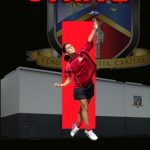 Inspire – Are you a positive role model who motivates others to try their best?
Inspire – Are you a positive role model who motivates others to try their best?
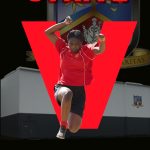 Versatility – Can you apply your skills to different sports and adapt to changing situations?
Versatility – Can you apply your skills to different sports and adapt to changing situations?
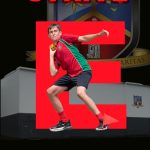 Excel – Do you strive to be the best you can be?
Excel – Do you strive to be the best you can be?
Possible careers include:
- Sport coaches
- Sports development in communities
- Disability sports development
- Volunteering in Sport
- Sports Facilities management/operations
- Sports Science/nutrition
- Working for National governing bodies/Sports organisations
- Academic/lecture/teaching
- Sports marketing/broadcasting/journalism
- Sports events management
Exam Success
The school enters pupils in the AQA GCSE Physical Education examination
2023 BTEC Sport results (19 pupils):
26% Achieved a Distinction *
32% Achieved Distinction>
53% Achieved Merit>
89% Achieved Level 2 Pass>
100% Achieved Level 1 Pass>
2023 GCSE PE results (10 pupils):
10% Achieved Level 7
30% Achieved Level 6>
50% Achieved Level 5>
60% Achieved Level 4>
80% Achieved Level 3>
100% Achieved Level 2>
Sporting Celebrations Academic Year 2022 – 2023
Sports Competitions
Swimming
- We entered pupils from all year groups into the Sussex Schools Swimming Championships. All pupils showed huge determination.
- Two of our pupils achieved second place finishes against the best swimmers in the county.
Boys’ Football
- The Year 7 boys football team has some very exciting players. They have demonstrated excellent potential and have had some great results.
- The Year 8 boys have shown a huge commitment to attend football club. This team has been highly successful, winning all but one of their matches.
- Our Year 9 and 10 football teams have played some excellent football and have both developed very strong squads.
- Our Year 9 footballers particularly excelled this year. They won virtually every match.
Girls’ Football
- The Year 7 girls team have had a brilliant first year and remain unbeaten.
- Our Year 8 girls team has won all but one of their matches.
Netball
- Our Year 7 and 8 Netball teams have played extremely well, building upon their strengths throughout the year. This was demonstrated by them winning the majority of their matches.
- The Year 8 team particularly excelled as they finished second overall in our partnership area.
- The Year 9 team demonstrated the PE STRIVE values particularly well, building as a team throughout their games.
Cross Country
- We are proud to have some very talented long distance runners at St Richard’s. This year, our pupils entered the Waterhall X-Country event in Brighton. This event targets the most elite distance runners across Sussex.
- One pupil in Year 7 finished her race in 10th place out of 212 competitors, what an amazing achievement!
Table Tennis
- Our table tennis teams enjoyed significant success in their matches against the other Hastings and Rother schools. We are extremely pleased that all of our teams managed to finish in the top three.
- In the Lower School, our Year 7 & 8 boys and girls’ teams both came second place.
- Our U16 girls team came 3rd against the other Hastings and Rother schools and received bronze medals.
- Our U16 boys team won. They then went on to the next phase of the competition and finished second out of all of the schools in Sussex.
Boys’ and Girls’ Rugby
- We have had a successful start to girls’ rugby this year. St Richard’s girls in all year groups embraced rugby during their lessons and many attended the club.
- The girls have trained hard and we are looking forward to being able to report about their fixtures next year.
- Our Year 7 and 8 boys’ rugby teams have trained well and have given everything in their matches. They should be proud of their achievements.
- Our Year 7 team came second place in our partnership area and our Year 8 team came in first!
- Our Year 9, 10 and 11 boys’ teams worked tirelessly for each other in every match and should be proud of finishing second place in our partnership area.
Basketball
- The Year 7, 8, 9, 10 and 11 boys had rewarding seasons, winning their fixtures in the Rother District League to secure the overall victory. They again qualified for the jr.NBA play-offs.
- Next year, we are going to make a concerted effort to play in the Sussex Schools Competition and also play against the local public schools.
Girls’ Basketball
- The annual fixture against the Rother Rockets was well attended with many girls giving up their Saturday to represent the school.
- The high paced basketball matches against the other schools in the Hastings and Rother area tournament saw the pupils demonstrate their ability to work as a team, applying their well-developed skills and strategic knowledge, outwitting their opponents game after game.
- Our Year 7s finished 3rd, our Year 8s and 9s finished in 1st and our Year 10s finished 4th.
Cricket
- The new astro wicket and the portable cricket net have been of great benefit to our pupils and to Primary pupils for their cricket skill workshops and tournaments. The Chance to Shine programme led by Sussex Cricket has gone from strength to strength this year, with girls’ cricket growing in popularity and many of you giving up your time to become young leaders for the sport.
- Our girls played brilliantly in their debut cricket tournament with a second place finish. They are looking forward to the next round of indoor tournaments in the early part of the new calendar year.
Rounders
- The Year 7 team made a fantastic start to their rounders this year. They communicated well as a team in their matches, fielding the players in the strongest set up and secured themselves a full house of wins.
- The Year 8s unfortunately had a depleted team for their main tournament. Despite this, they put in a phenomenal effort and I’m sure they will be a force to be reckoned with when they are all available for future fixtures.
Sports Leaders
- St Richard’s Sports Leaders have hosted the Bexhill Primary Schools cross country, netball, basketball and football tournaments, as well as summer athletics events for several primary schools.
Ashburnham
- Year 7 pupils and some lucky Year 8s had the opportunity to go on the Ashburnham trip this year. It was a fun filled day with lots of different challenges for pupils to overcome.
Athletics
Town Sports
- There were a lot of standout performances at Town Sports this year, with many podium finishes. We finished in fourth place overall out of the ten schools in the Hastings area, just a few points away from third place. Our Year 9 boys performed particularly well. They won Town Sports for their year group. An amazing achievement.
Super 6s Athletics
- Our pupils performed extremely well in the super 6’s athletics and managed to finish in 3rd place out of the 8 schools in the Hastings and Rother area. Well done to all of the pupils involved.
Sports Day
- Everyone in the school community deserves huge credit for making Sports Day such a tremendous occasion. The atmosphere was incredible, it was extremely competitive and all pupils in the school took part.
Overall Results
1st place – Howard: 587 points
2nd place – Gwyn: 582 points
3rd place – Wells: 548 points
4th place – Rigby: 531 points
Remote learning in PE
GCSE PE and BTEC Sport:
All lessons for GCSE PE and BTEC Sport are shared by their class teachers through Google Classroom on a weekly basis. These lessons are in line with the same content that pupils in school are learning. Pupils are expected to submit any work completed remotely within a week of their timetabled lesson. GCSE PE and BTEC Sport lessons will be taught as live lessons if whole cohorts are working remotely.
Key Stage 3 Physical Education
KS3 pupils experience a range of activities from a broad-based programme. These areas include, invasion games, individual activities and net games. Pupils are assessed on their practical performance, knowledge and understanding, evaluation of performance, health and fitness, and their coaching skills.
Pupils will use their KS3 PE booklets to comment on and track their progress. They will do this for each sport from the beginning of year 7 through to the end of year 9. A copy of our KS3 PE booklet can be seen here: KS3 Booklet.pdf
Key Stage 4 Curriculum
KS4 – Sports Studies – Exam Board: AQA
Main features of course content
The GCSE course is offered in Learning Pathway 4. The course is both practical and theoretical.
Practical
Pupils will be practically assessed as a performer across a range of activities. Pupils can also be assessed in other activities which may not be offered at the college.
Practical marks from three activities will make up their practical coursework marks, along with marks from a controlled assessment piece linked to one practical activity.
Practical Assessment – 30%
Controlled Assessment – 10%
Pupils are assessed on the practical content under the following headings:
- – Application of skills required in the sport/activity
- – Performance in the full context of the sport/activity.
Theory Assessment
Pupils will be assessed in two exams at the end of the two year course:
Paper 1: The human body and movement in physical education and sport – 30%
Paper 2: Socio-cultural influences and wellbeing in physical activity and sport – 30%
There is one tier of entry, covering grade 9 – WT
BTEC Level 1/Level 2 Tech Award
The Pearson BTEC Level 1/Level 2 Tech Award in Sport (603/7068/3) is for learners who want to acquire sector-specific applied knowledge and skills through vocational contexts by exploring the different types and providers of sport and physical activity and the equipment and technology available for participation as part of their Key Stage 4 learning.
They will also explore the different types of participant and their needs in order to gain an understanding of how to increase participation for others in sport and physical activity and further develop their knowledge and understanding of anatomy and physiology. Learners will undertake practical sessions to develop skills in planning and delivering sports activity sessions to participants.
The qualification enables learners to develop their sector-specific skills, such as sport analysis and sports leadership, using realistic vocational contexts, and personal skills, such as communication, planning, time management and teamwork through a practical and skills-based approach to learning and assessment. The qualification recognises the value of learning skills, knowledge and vocational attributes to complement GCSEs. The qualification will broaden learners’ experience and understanding of the varied progression options available to them.
The course is divided into 3 components:
Component 1: Preparing participants to take part in sports and physical activity.
Component 2: Taking part and improving other participants’ sporting performance.
Component 3: Developing fitness to improve other participants’ performance in sport and physical activity.
Overall, the course is 60% coursework (components 1 and 2), including practical elements and assessments and 40% external exam (component 3). Grades are awarded from a Level 1 Pass, Merit and Distinction onto a Level 2 Pass, Merit, Distinction and Distinction*.
OCR Cambridge Nationals: Sports Science
The Cambridge National in Sport Science will encourage students to:
- Understand and apply the fundamental principles and concepts of Sport Science
- Develop learning and practical skills that can be applied to real-life contexts and work situations
- Think creatively, innovatively, analytically, logically and critically
- Develop independence and confidence in using skills that are relevant to the Exercise, Physical Activity, Sport and Health sector and more widely
- Prepare participants for physical activity in ways which keeps them safe as well as learning how to react should injuries happen and how to recognise common medical conditions
- Learn how to conduct fitness tests, including interpreting and feeding back on the data you get from these as well as how to design, implement and evaluate fitness training programmes
- Develop knowledge of either how the body responds to exercise and understand how technology helps inform us of these changes, or a delve into the world of sports nutrition to understand how what we eat can impact our performance in sport
- Develop the skills of team working, research and planning and understand that sports performance goes far beyond just the simple physical movements of the human body.
Units studied:
There are 2 mandatory units:
Unit R180: Reducing the risk of sports injuries and dealing with common medical conditions.
Unit R181: Applying the principles of training: fitness and how it affects skill performance.
There are two optional units of which one will be studied:
Unit R182: The body’s response to physical activity and how technology informs this.
Unit R183: Nutrition and sports performance.
extra-curricular activities
The department run a number of extra-curricular sports clubs before school, at lunchtime and after school.
This changes throughout the year depending on the sporting season.
A grid of clubs is available on the website and is updated every term.
The college also offers representative opportunities to all pupils in a wide range of sporting activities.
Fixtures and results will be posted on the College website and on the College’s Twitter page.
